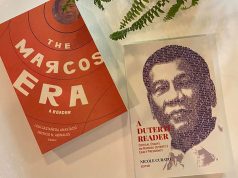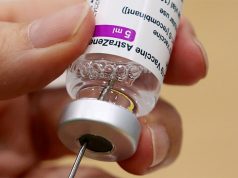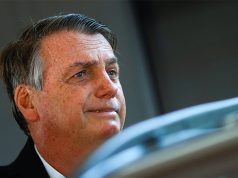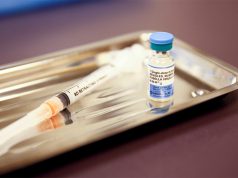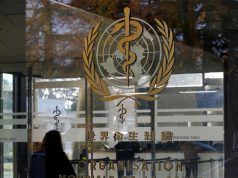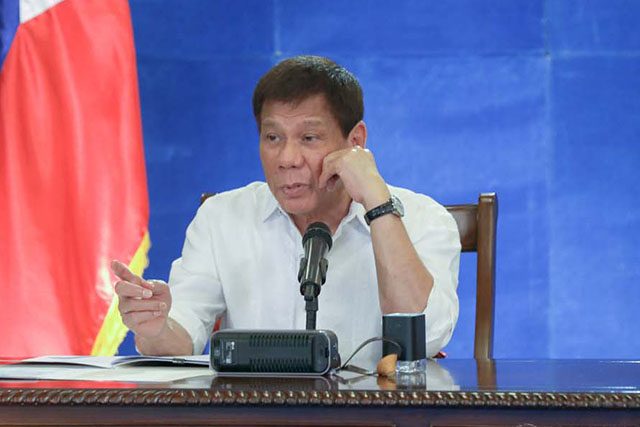
Critics told President Rodrigo Duterte to take the vaccination against the coronavirus disease seriously after his spokesperson revealed that he would receive the jab in private since he prefer to be vaccinated in his buttocks.
Presidential spokesperson Harry Roque was asked if the chief executive’s decision to get inoculated in private was final following previous reports that he would prefer to be vaccinated out of the public’s eye.
“I think so, he has said so. Sabi nga niya sa pwet siya magpapasaksak (ng vaccine) so hindi pupwedeng public,” the Palace official said in his Tuesday press briefing.
Inoculation is usually done through the upper part of the arm. Other times, it is administered orally through a nasal sprayer or through the thigh, particularly for infants and toddlers.
Injection through the buttocks, according to the United States’ Centers for Disease Control and Prevention, is not recommended for infants due to potential nerve injuries.
For adults, CDC recommends the upper arm injection.
Meanwhile, Roque last week said that Duterte prefer to be inoculated with China’s Sinovac COVID-19 vaccine in private, a shift in the latter’s tone from his August remarks.
Last August, the president said that he would be willing to receive the injection against COVID-19 publicly in a bid to convince Filipinos that the jabs are safe.
“Ako, pagdating ng bakuna, in public, para walang satsat diyan, in public magpa-injection ako. Ako ‘yung maunang ma-eksperimentuhan,” Duterte said in his national address on August 11, 2020.
This month, Roque said that Duterte will be “taking the route” of Britain’s Queen Elizabeth and Prince Philip who were inoculated in private.
Other leaders of democracies, however, took theirs in public such as US President Joe Biden, Indonesian President Joko Widodo and Singaporean Prime Minister Lee Hsien Loong.
More vaccine distrust?
Roque’s remarks that the chief executive wanted to get inoculated in his behind did not sit well with some Filipinos who think this will only cause “more vaccine distrust.”
“Instead of instilling confidence, you’re causing more distrust because you keep on joking on things that need to be taken seriously. Sabagay, why expect so much from you when all these times you were nothing but a bunch of clowns!” a Twitter user said in response to the reports.
“How were (you) able to have the guts to joke when people’s lives are at stake? (You) being called a president? ‘Di deserve,” another online user commented.
“Ano, lokohan na lang? Patawa na lang para ‘di maungkat seryosong isyu?” a different Filipino likewise shared in response to Roque’s remarks.
Controversies surrounding COVID-19 vaccines include the unauthorized vaccination of Duterte’s close-in security personnel, the higher prices of Sinovac offered to the Philippines compared to other countries and the sudden inclusion of soldiers and policemen’s families in the priority list.
Earlier this month, it was reported that only 32% of Filipinos were willing to be vaccinated against the viral disease despite the prevailing threats of the pandemic.
Pulse Asia‘s poll showed that nearly half of the Filipinos prefer to skip the jab mainly due to safety concerns.
Some social media users perceived the reluctance as a reflection of the public’s lack of trust in the national government’s handling of vaccination as a public policy.
READ: Dengvaxia mess resurfaces after latest poll showed only 32% open to COVID-19 jab
Prior to the pandemic, there have already been difficulties in vaccination drives to prevent diseases such as flu, measles and dengue among children, particularly in poor, urban and rural areas.
The country’s low vaccination rate was largely blamed to the dengue immunization program in 2017 that was allegedly linked to deaths of children, which eventually caused fear among parents.




